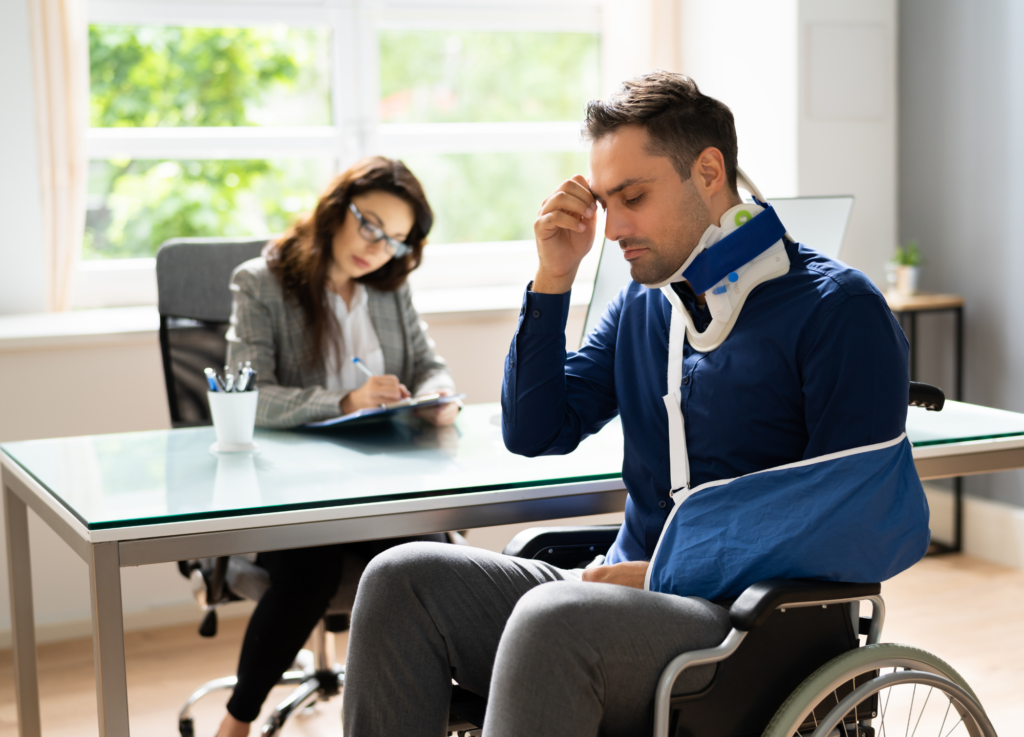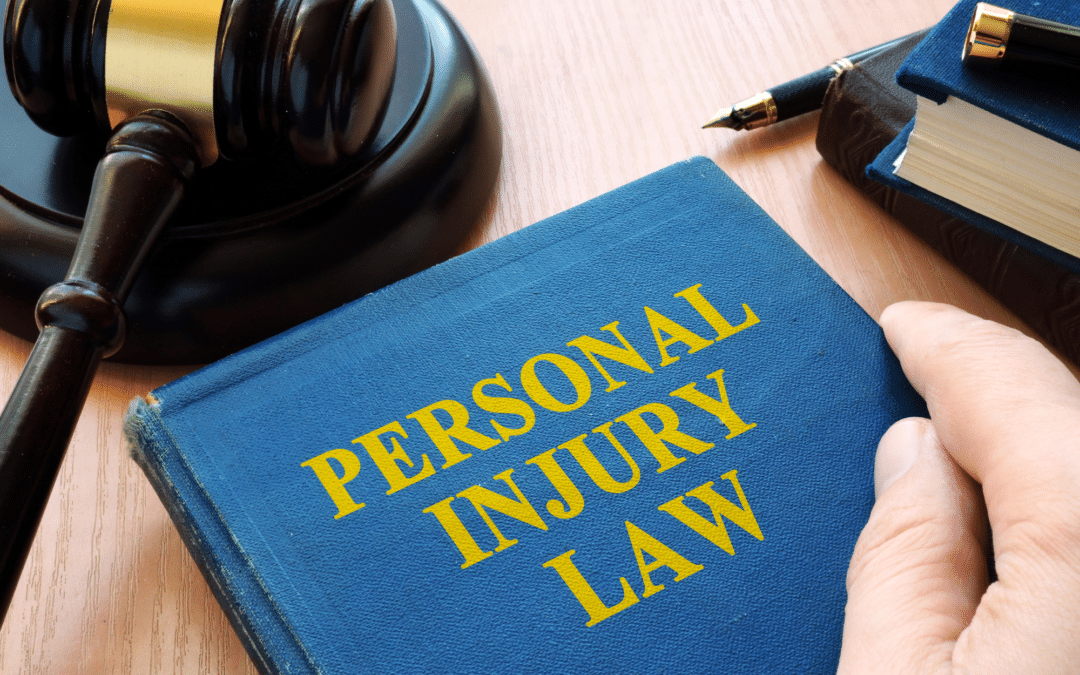Personal Injury Protection (PIP), a type of car insurance, is often a point of confusion for many drivers. PIP coverage aims to provide immediate medical coverage, lost wages compensation, and certain other benefits for accident victims, regardless of who was at fault. In this blog post, we will demystify PIP by examining what it is, how it works, and why it’s important for you as a driver to understand and consider.
Personal injury protection is especially crucial for those unexpected moments on the road that can lead to significant medical bills. Imagine being involved in a car accident, only to realize the financial burden of emergency medical care, ongoing treatment, and potential income loss while recovering. This is where PIP steps in, offering a financial safety net that covers these expenses, thereby reducing the immediate stress of an accident. Furthermore, consulting with a personal injury lawyer can help you understand the full scope of benefits covered under your PIP policy, ensuring you maximize the assistance available to you following a car accident.

Understanding PIP
Personal Injury Protection (PIP) insurance is a type of auto insurance that covers medical expenses, and in many cases, lost wages and other damages. It is often referred to as a “no-fault” coverage, which means it pays out regardless of who is at fault in the accident. This insurance is designed to provide prompt financial support to drivers and passengers after a car wreck, helping them manage medical bills and expenses that may arise as a result of the accident.
Navigating the complexities of personal injury law can be challenging for individuals without legal knowledge, particularly when filing personal injury claims. This is why consulting an experienced personal injury attorney is crucial. An attorney not only provides invaluable guidance through the legal process but also ensures that you understand the intricacies of your personal injury case. With their expertise, you can confidently pursue the compensation you rightfully deserve, whether it involves negotiating with insurance companies or taking the case to court. Their support can make a significant difference in the outcome of your claim, maximizing your potential benefits and safeguarding your rights throughout the process.
Coverage Details and Benefits
The specifics of PIP coverage can vary by state. In a typical PIP policy, covered benefits include:
- Medical expenses: Coverage for necessary medical treatment, services, and devices related to injuries from a car accident.
- Lost wages compensation: Payments for the income lost due to injuries that prevent you from working.
- Funeral expenses: Coverage for funeral costs in the unfortunate event of a fatality.
- Rehabilitation services: PIP may cover the cost of necessary rehabilitation services, such as physical therapy or vocational therapy.
- Survivor’s loss: In the event of a fatality, PIP can provide benefits to surviving family members.
Eligibility Criteria and Limitations
To be eligible for PIP benefits, you must be injured in a covered auto accident. PIP usually extends to the policyholder, family members, and passengers in the insured vehicle. There are limitations on the type and amount of coverage that PIP provides, and these will depend on your specific policy and state regulations.
How PIP Works
Filing a Claim
If you are involved in a car accident and suffer injuries, you’ll need to notify your insurance company as soon as possible. The claims process usually involves filling out a claim form, providing documentation of the injury and treatment, and sometimes a statement under oath.
Reimbursement Process
After you file a PIP claim, you may receive coverage for your expenses up to the policy’s limits. The insurance company typically reimburses you for medical bills and lost wages directly. Depending on the state regulations and your insurance policy, there may be a deductible or copay that you are responsible for.
Interaction with Other Insurance Coverages
PIP interacts with other insurance coverages in various ways, and the coordination of benefits becomes crucial. For example, if you have health insurance that would cover your injuries, PIP might step in to cover the deductibles and copays, or it could cover costs not included in your health insurance plan.
Benefits of PIP
Immediate Medical Coverage
One of the most significant benefits of PIP is the immediate coverage for medical expenses. Unlike traditional health insurance, PIP doesn’t require you to wait for an approval process to cover necessary medical treatments. This can be very reassuring, especially when you’re facing urgent medical needs after an accident.
Lost Wages Compensation
Injuries from car accidents can often lead to time off work or even the inability to return to work. PIP can help by reimbursing a portion of your lost income so that you can financially cope without the added stress of lost wages.
Legal Considerations
From a legal perspective, PIP can be a game-changer. It may alleviate some of the financial pressures that often push victims to settle their claims too quickly or for less than the actual worth. By having PIP, you have some financial security, allowing you and your legal team to focus on building a strong case without the added stress of unpaid medical bills.
Importance for Drivers
Why Drivers Need PIP
You might wonder why you need PIP if you already have other insurance coverages like health insurance or disability insurance. The answer lies in the unique benefits that PIP offers—swift, no-fault medical payments and immediate financial support that can be crucial after an accident. For drivers who don’t have robust health insurance coverage, PIP can be particularly valuable.
Cost Implications and Comparisons
When considering PIP, it’s important to understand the cost implications. PIP can add to your overall insurance premiums, so it’s vital to weigh the benefit against the price. Comparing the cost of PIP with potential out-of-pocket expenses in case of an accident is a prudent way to decide if it’s right for you.
PIP’s ability to cover medical expenses immediately after an accident sets it apart from other types of insurance, offering peace of mind in moments of uncertainty. By covering medical bills directly, PIP ensures that victims do not have to worry about the financial burden of medical costs while they recover. This direct coverage of medical expenses can significantly alleviate stress and allow individuals to focus on their recovery rather than on how they will afford their medical bills.
Legal Perspective
Legal Professionals’ Insights on PIP
Many legal professionals view PIP as an excellent supplement to traditional auto insurance because it provides quick and easy compensation for injuries and medical bills. Attorneys may utilize PIP to enhance a client’s case and ensure that they are adequately compensated for all damages.
Common Legal Issues and Resolutions
Legal experts recognize that there can be conflicts between PIP and other insurance coverages, and they assist clients in navigating the complex web of claims and benefits. Addressing coordination of benefits is a crucial step in the legal process, ensuring that injured parties receive the maximum benefit possible.
In conclusion, Personal Injury Protection is a valuable and often essential part of an auto insurance policy. By offering immediate medical coverage, lost wages compensation, and other benefits, PIP can be a lifeline for drivers and passengers in times of crisis. Understanding how PIP works and its significance is an essential step towards being a well-informed driver and policyholder. By taking the time to explore the details of PIP, you enable yourself to make educated decisions that can protect your well-being and financial security. It’s about driving with confidence, even in the face of unexpected events, and ensuring that you’re prepared for any eventuality.

FAQs
What role does an experienced personal injury lawyer play in PIP claims?
An experienced personal injury lawyer can provide invaluable assistance in navigating the complexities of PIP claims. They help ensure that all medical expenses and lost wages are covered within the policy limits and advocate on your behalf to secure compensation for serious injuries that exceed those limits.
How does bodily injury liability insurance differ from PIP?
Bodily injury liability insurance is designed to cover damages for which the policyholder is legally responsible, such as injuries sustained by others in an accident caused by the policyholder. Unlike PIP, or no-fault insurance, which covers the policyholder’s own injuries regardless of who is at fault, bodily injury liability insurance covers victims other than the policyholder.
What is the significance of no-fault insurance in states that require it?
No-fault insurance, also known as Personal Injury Protection (PIP), ensures that individuals receive prompt medical treatment and compensation for lost wages without the need to determine fault in an accident. This can significantly expedite the process of receiving essential services and reduce the financial burden of doctor bills and other related expenses.
How does liability car insurance interact with PIP?
Liability car insurance covers damages and injuries caused to others in an accident for which the policyholder is at fault. In contrast, PIP covers the policyholder’s own injuries without regard to fault. Together, these coverages provide a comprehensive safety net, with liability car insurance protecting against claims from others and PIP covering the policyholder’s immediate needs.
Can PIP coverage be used for services deemed essential after an accident?
Yes, PIP coverage can extend to essential services that the injured party may be unable to perform due to their injuries. This can include, but is not limited to, housekeeping, childcare, and transportation services, ensuring that day-to-day life can continue with minimal disruption.
What happens when medical expenses exceed the policy limits of PIP?
When medical expenses or costs for essential services post-accident exceed the policy limits of PIP, individuals may need to rely on their health insurance or seek compensation through a personal injury lawsuit, especially if they have sustained a serious injury. An experienced personal injury lawyer can assist in exploring these options.
What constitutes a serious injury under PIP regulations?
A serious injury typically refers to a condition that significantly impacts one’s quality of life or ability to perform normal daily activities. The exact definition can vary between states and insurance policies, but it generally includes permanent injuries, significant disfigurement, or conditions requiring extensive recovery time.
Are doctor bills fully covered by PIP?
Doctor bills are covered by PIP up to the policy’s limit and as per the terms defined in the insurance policy. Coverage includes necessary medical treatments related to injuries sustained in the auto accident. It’s important for policyholders to review their PIP limits and consider whether additional coverage might be needed to fully protect against potential medical expenses.

